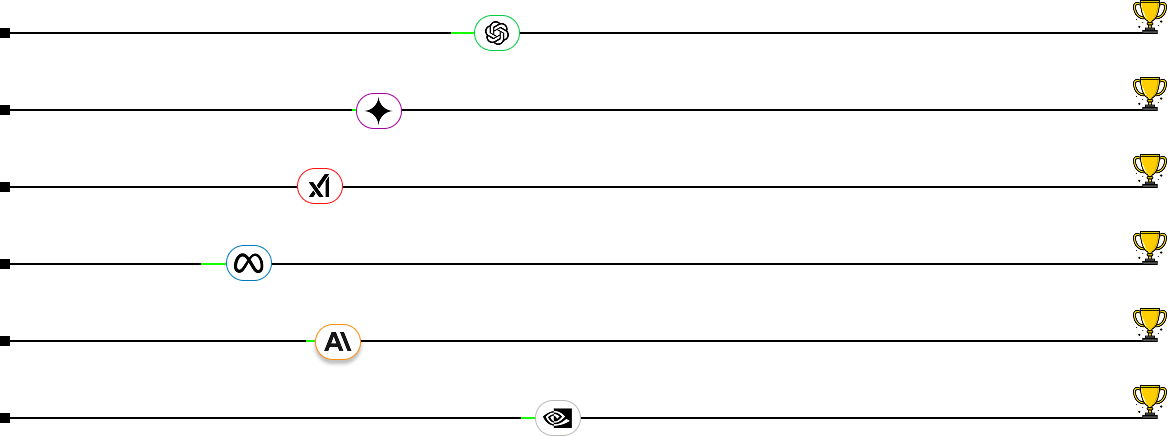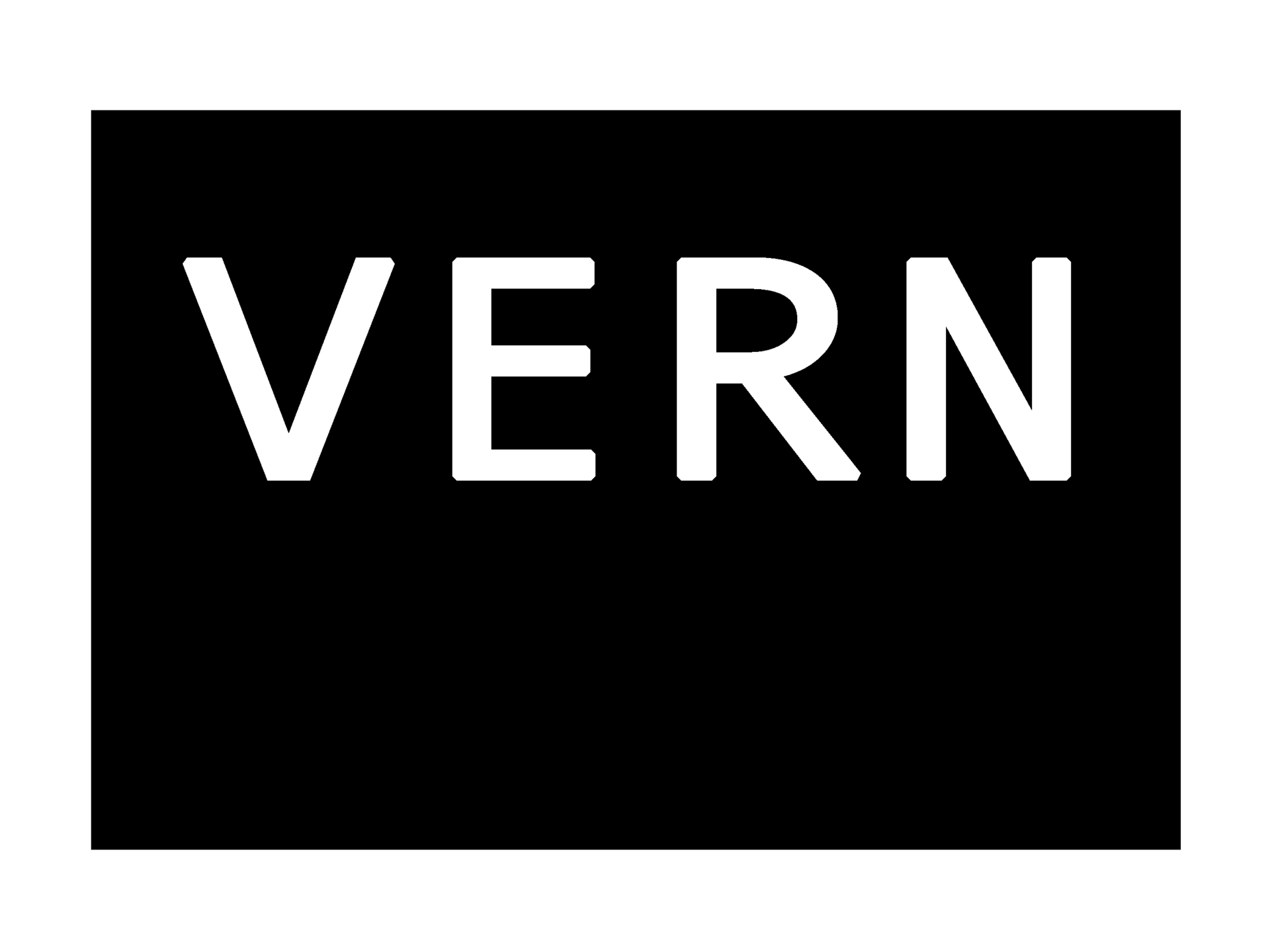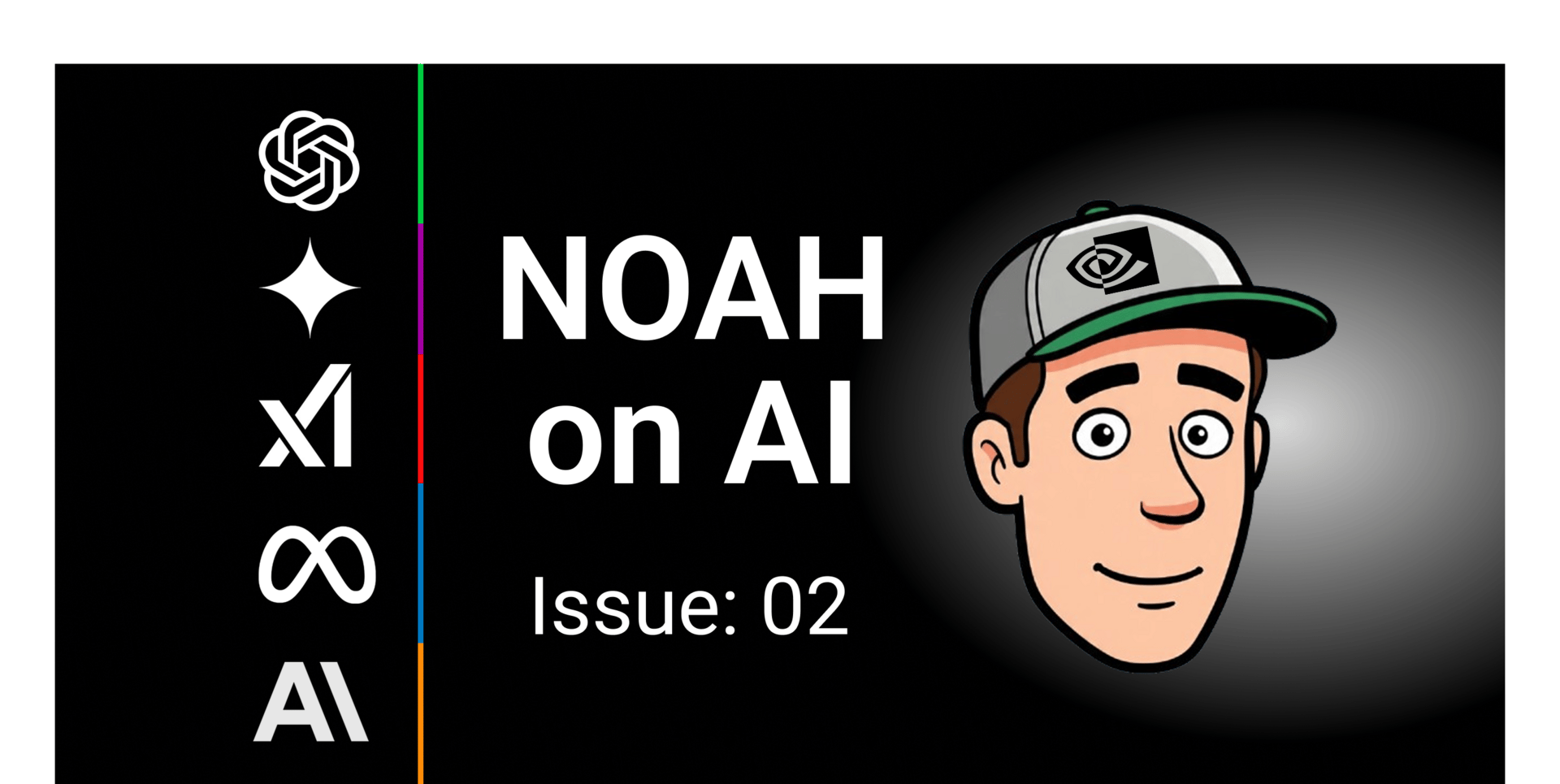🌟 Editor's Note
Recapping the AI landscape from 07/14/25 - 07/21/25. The Impact Industry highlight on Education is a few weeks old but I found it interesting!
🎇✅ Welcoming Thoughts
Welcome to the 2nd edition of NoahonAI.
What’s included: company moves, a weekly winner, AI industry impacts, practical use cases, and more.
I’m looking to interview someone in the education space soon. AI has such wide-open potential to transform how we learn. I had GPT build a course for me using YouTube, X, and a few other tools this week. It was super helpful.
Starting next week, I’ll add a section covering some of the non-NVIDIA5 players like Perplexity, Cursor, Copilot, DeepSeek, and more.
Basics & Buzzwords blog drops this Friday—a guide for anyone just getting started with AI.
Pro tip: Ask an AI like Grok to write a prompt you can paste into GPT. It will help you get better results and teach you how to write stronger prompts yourself.
Might end up saying this a lot, but outstanding interview this week from someone who really embraces AI and uses it at a high level. Lots of interesting use cases for both personal and professional productivity.
I really like what Meta is doing. An insane amount of spending that I think will pay off in the long run.
Let’s get started—plenty to cover this week.
👑 This Week’s Winner: OpenAI // ChatGPT
GPT Agent Mode rolled out to Pro users this week and some Plus users (I’m still waiting to try it!). Agent Mode is essentially a virtual coworker that can plan and execute tasks in its own browser. Not only can it browse, it can take action. One example from OpenAI’s demo prompted it to create a company logo and order 500 stickers to the company address. Agent Mode also managed to score a record 41.6% on Humanity’s Last Exam. In other news, another internal GPT model achieved gold medal-level performance on International Math Olympiad questions, and a 3rd model narrowly lost to a human in a 10 hour coding contest. Rumors of a GPT-5 launch are heating up, with leaks suggesting a big performance jump over GPT-4o. OpenAI also pushed into e-commerce this week, working on a GPT checkout system.
This is the first time I’ve felt that simply chatting with a bot to ask questions is slightly limited. The baseline ChatGPT experience is starting to look more like the entry point than the destination.

From Top to Bottom: Open AI, Google Gemini, xAI, Meta AI, Anthropic, NVIDIA.
⬇️ The Rest of the Field
Who’s moving, who’s stalling, and who’s climbing: Ordered by production this week.
🔵 Meta // Meta AI
Prometheus & Hyperion Facilities
Meta is building two massive AI data centers: Prometheus (1 GW in Ohio, launching in 2026) and Hyperion (scalable to 5 GW in Louisiana). Hyperion is 50x the size of a typical data center and “large enough to cover most of manhattan”.
Hiring and Spending Continues
Meta continued its high-stakes hiring spree this week, poaching two more Apple AI experts. With data centers and hiring, Meta plans to spend hundreds of billions over the next few years, this will be somewhat offset by their $165B annual ad revenue.
Goodbye Open Source?
Meta is reconsidering its open-source approach in order to preserve competitive advantages. This could hurt developers who can’t afford premier AI software.
⚪️ NVIDIA
H20 China Approval
Following a meeting between NVIDIA CEO Jensen Huang and President Trump, the U.S. re-approved sales of downgraded H20 chips to China after they were banned in April. As a result, NVIDIA’s stock surged ~4%.
UK Supercomputer Goes Live
The UK launched Isambard-AI, powered by NVIDIA’s Grace Hopper Superchips, just another bolt in NVIDIA’s infrastructure dominance.
Supply Strain // Geopolitical Pressure
After halting production on the H20, NVIDIA needs to ramp up H20 manufacturing. There’s definitely a balancing act between selling to China and competing with them. The U.S doesn’t want to give them too much, but also wants to keep their spend with NVIDIA rather than forcing them into building a competitor.
🟠 Anthropic // Claude
Claude for Financial Services
Anthropic launched a finance-focused Claude with compliance tools, document analysis, and connectors for finance platforms. It’s aimed at assisting banks, hedge funds, and fintech.
Usage Cuts + Financial Pressure
Claude added stricter usage limits on Claude Code this week without warning users. With instances like this happening in back to back weeks, there is some speculation that there are financial concerns at Anthropic.
DoD Government Contract
Claude was awarded a contract worth up to $200M by the DoD’s Chief Digital & AI Office, marking its first verified step into high-stakes institutional AI deployment. OpenAI, xAI, and Gemini also received contracts.
🟣 Google // Gemini
AI Phone Agents
Gemini launched voice agents capable of placing live phone calls to check business hours and availability. In internal demos, Gemini called businesses and handled follow-ups while adapting to vague responses.
ChromeOS + Android Internal Merger
Google officially confirmed it will merge ChromeOS and Android into a single operating system, unifying phones, tablets, and laptops. The move lays the groundwork for a seamless AI experience across devices.
Prompt Injection Vulnerability
Google researchers detailed how prompt injection can compromise gmail accounts. Hackers can hide prompts in emails that when applied to the Gemini email summarization feature act as sleeper agents. With more technology, comes more cybersecurity.
🔴 xAI // Grok
DoD Government Contract
Likewise xAI secured a $200M contract with the U.S. Department of Defense under its new Grok for Government initiative.
One Step Forward, Two Steps Back
xAI unveiled a kids mode, as well as a flirty AI “Ani” with the release of Grok 4. However, it failed to employ safety measures, and Ani was accessible in Kids mode. It seems like recently xAI keeps shooting themselves in the foot directly before/after positive innovation.
Tesla Humanoids
Elon hinted that Tesla’s humanoid robots could operate in public spaces in the next few years, facilitating roles like serving concessions or interacting with customers.
🎨 Impact Industries 🎓
Creative // Visual Effects
Netflix quietly used generative AI to create a full building collapse scene in its new sci-fi series El Eternauta — achieving blockbuster-level VFX at a fraction of the time and cost. This is the first confirmed use of AI-generated visuals in a Netflix original. I believe this is something we will be seeing a lot more across the industry. Per Netflix, real people are still doing real creative work, just with way better tools. The floodgates are open.
Education // AI in Schools
Massachusetts recently launched a statewide pilot called Future Ready, bringing AI into 45 public high school classrooms. Teachers are being trained to use AI tools like writing coaches, coding assistants, and lesson planners to improve instruction while helping students build real “AI literacy.” It’s not about replacing teachers, rather giving them stronger tools to prepare students. If it works, expect other states to follow.
🎙 Weekly Interview: Paul Cecil

Paul Cecil
🏠 Background: Paul attended The Ohio State University Fisher College of Business and earned a B.S.B.A with a specialization in finance.
💼 Work: VP of Strategy at reAlpha Tech Corp (NASDAQ: AIRE).
🚀 Quote: When ChatGPT came out, it changed everything. Our CEO walked in and said, “Forget everything you know, the world has changed. You need to unlearn and relearn everything with AI in mind.”
Noah Weisblat: I'm here with Paul Cecil. Paul, tell me about yourself—where are you from, and what do you do?
Paul Cecil: My name's Paul Cecil. I'm the VP of Strategy at RealAlpha Tech Corp. We're listed on the Nasdaq under the ticker AIRE. My background’s in finance. I graduated from Ohio State with a degree in finance. A few years ago, I had the opportunity to travel to India and complete an executive education program at IIM Bangalore, focused on private equity and capital markets.
I joined RealAlpha in September 2021 as employee number 10. At the time, we were a completely different company with a small team. I've been with the company through our evolution, including our NASDAQ listing. So far, I’ve helped lead eight capital raises and six company acquisitions. I’m excited to see what’s next for RealAlpha.
Noah: What does your day-to-day look like?
Paul: It varies, but my role is to guide the company toward our long-term vision—making sure we have the right people and resources in place at the right time. I work on everything from capital raises and strategy development to board communications and investor relations.
Noah: Let’s talk about AI. What are your general thoughts, and how are you using it in your workflows?
Paul: We’re very bullish on AI. It’s literally in our ticker: AIRE, AI for real estate. We’ve been on the forefront for a while. Even before ChatGPT, we developed our own AI to analyze properties for short-term rental potential, scoring them from 0 to 100.
When ChatGPT came out, it changed everything. Our CEO said, “Forget everything—we need to unlearn and relearn everything with AI in mind.” From that moment, I redesigned all my workflows to fully leverage AI. Companies that don’t embrace this will fall behind quickly.
Noah: What kind of AI adoption are you seeing across your industry?
Paul: Tech is extremely AI-forward. Real estate, not so much. The industry still lags in tech adoption. People still use faxes and “data tapes,” which feels like using a VCR.
We’ve stayed ahead by acquiring an AI development company in Nepal that had been working with us from the beginning. They became so integral that we brought them in-house. So yeah, tech is fast, real estate is slow, and we’re working to bridge that gap.
Noah: You mentioned OpenAI being your go-to. Which tools or models do you rely on most?
Paul: OpenAI, especially ChatGPT. Its deep research capability is incredibly strong. It’s fast, accurate, and remembers context well. It understands our strategy and constraints and provides great recommendations. We regularly use it to generate reports that used to take six months—now they take 20 minutes.
Noah: What kinds of reports?
Paul: Case studies, competitor analysis, strategic plans. For example, I had it analyze Palantir’s investor relations strategy, especially Alex Karp’s approach. It returned a 40-page report with 100 sources in 30 minutes.
Noah: If you had to rank OpenAI, Google (Gemini), Meta (LLaMA), Anthropic (Claude), xAI, and NVIDIA, where would you put them?
Paul: OpenAI is #1—for our use case and because of their resources. I’d put Microsoft in the same tier due to their partnership. Between Google and Meta, I’d lean toward Google. Gemini doesn’t retain context well. It’s good for email summarization, but not much else. Meta (LLaMA) would follow. Perplexity has gotten strong recently. I rarely use Claude.
Noah: From a personal productivity standpoint, how much more efficient are you today vs. before AI?
Paul: At least 50x. There’s no way I could handle the equivalent of three teams’ worth of work and still have a social life without AI. I work on finance, strategy, and more. AI handles research and analysis, freeing me up for execution.
Noah: Can you share a three-step workflow you’ve automated using AI?
Paul: There’s one I can’t detail much because it’s proprietary, but I’ve used AI to streamline key communication processes. That’s been a big efficiency unlock.
Noah: What’s one drawback or problem you’ve encountered using AI?
Paul: You can’t use AI as a crutch. You still have to think critically and prompt well. Poor input gives you poor output. It can also return formatting that’s unprofessional—like overuse of m-dashes and emojis. You have to train it to respond appropriately for your environment.
Noah: If you were advising a high school senior or recent college grad looking to enter finance or tech, what would you say?
Paul: Traditional education is outdated. AI has leveled the playing field for entry-level knowledge. A degree alone isn’t enough. Use AI to experiment and build something. If you're into development, build an app. If you’re into finance, design a trading algorithm and try it out. You need to show initiative and creative thinking.
Noah: What are your thoughts on AI trading in general?
Paul: It’s already been happening for a long time. It’s called Quant Finance. That’s what hedge funds do. They’re hiring math majors instead of just finance grads because trading has become algorithm-driven. Competing as a human is nearly impossible—unless you have inside information, which you can’t trade on. Hedge funds still have the edge, using 700+ data points and deep math to build models. You might beat the market for a while using ChatGPT, but quants are light years ahead.
Noah: You mentioned personal AI projects. Tell me about your "personal board of directors."
Paul: I created a ChatGPT project called “Personal Board of Directors.” Each thread is a different coach—strategy, relationships, public speaking, even bonsai trees. I’ve trained each one to speak in a specific voice—some modeled after real people like Jocko Willink or certain authors.
One coach talks to me in military metaphors, which I love. I get advice in 30 seconds. It’s boosted my decision-making and productivity across the board.
Noah: Where do you see AI going in the next 5–10 years?
Paul: At RealAlpha, I’d love for the home-buying process to feel like talking to one person from start to finish. AI could be the concierge for everything—mortgage, inspections, moving, etc.
More broadly, I think we’ll see superintelligence soon. AI will be embedded in everything—fridges, washers, and more. In the short term, it will eliminate many jobs. In the long term, it will solve global challenges and simplify life.
Noah: Thanks for your time, Paul.
Paul: Absolutely—thanks for having me.
👨💻 Practical Use Case: Deep Research
Difficulty: Basic
If you listen to or read the noahonai interview this week, you’ll get a taste of how powerful AI’s deep research functionality can be when it’s executed right.
Deep research works by pulling in hundreds to thousands of primary sources—news articles, research papers, blog posts, forum responses—and then running dozens to hundreds of follow-up queries across those sources to fill in gaps, summarize perspectives, or extend threads. It’s not just a summary of the top 10 search results. It’s full-scale, multi-threaded investigation.
What makes deep research so powerful is the concept of time. You could have the smartest, most efficient person in the world sitting next to you, and it would take them days to match what deep research can do in a few minutes. It’s an interesting framework when thinking about AI use cases, some are about productivity, some are about creativity, but almost all of them save us the one thing we can’t get back: time.
Sergey Brin, cofounder of Google, stepped away from his company for a few years and rejoined for the AI race in 2023. Here’s what he said about deep research:
“By default, when you use some of our AI systems... it'll suck down whatever top 10 search results... I could do that myself... But if it sucks down the top, you know, thousand results and then does follow-on searches for each of those and reads them deeply—that’s, you know, a week of work for me. Like, I can’t do that.”
Effectiveness by Company:
Grok and Perplexity are definitely the fastest, they’ll do the job in 3-4 minutes, but it often feels surface-level, or some details are askew. Gemini is very good, but sometimes it’s almost too much, and I find myself needing to sift through to make sense of it all.
GPT generally hits the sweet spot for me. It seems to pull in 90% of what Gemini does, but it presents it in a cleaner, more focused way, especially if you’re trying to build a tight argument or summary. For shorter projects, I’d recommend ChatGPT, for longer projects I’d recommend a combination of GPT and Gemini deep research.
🚑 Startup Spotlight

VERN AI Gives Machines Emotional Intelligence
VERN AI: A patented, real-time emotion recognition system used by tens of thousands of people world wide in award winning customer service and mental health applications.
How it Works: VERN AI uses a neuroscience model of emotions that is proven effective and accurate enough for high-risk situations like mental health and health care. Working in real time, VERN can track each sentence spoken or written and provides how emotions change over time, and/or give AI the ability to empathize with the user.
The Backstory: Founder Craig Tucker named the company after his grandfather Vern, who ran a GM dealership and lived the American dream until a sudden loss left his grandmother with a deep sense of loneliness. That experience sparked Craig’s search for a way to help people feel seen and understood. Along the way, he realized how poorly AI handled human emotion, and set out to build something that could actually listen, and react.
Funding: Raising $1.5M Seed Round
Contact: [email protected]
“It’s not likely you’ll lose a job to AI. You’re going to lose the job to somebody who uses AI”
- Jensen Huang | NVIDIA CEO
Anyone get out to a Coldplay concert this week? Till next time,

